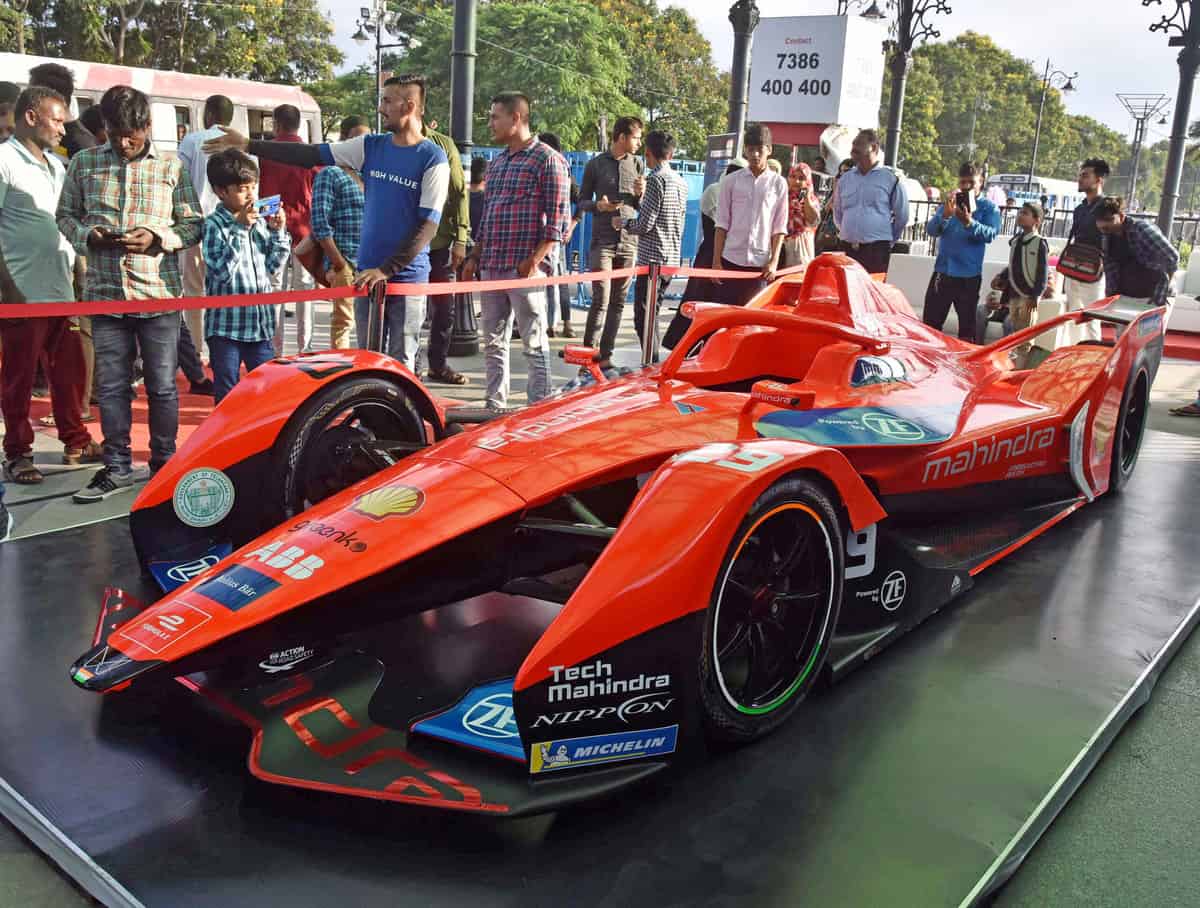
Hyderabad: Big-ticket motorsport action returns to India after a decade with Hyderabad becoming the 30th location to host a Formula E race.
Here is all you need to know about the all-electric racing series ahead of its first race in India on Saturday.
How different is it from Formula 1?
Formula E is an electric equivalent of the widely followed Formula 1 which was staged in India from 2011 to 2013. However, other than the Formula’ prefix, there is no similarity between the two FIA world championship status events.
The hybrid turbo-charged engines in Formula 1 are the epitome of performance while the battery-powered Formula E machines promote sustainability and a greener world.
Formula E is racing with a purpose but its cars have rapidly evolved over the last eight seasons and Gen3 technology has been introduced this season. As the series claims, Gen3 is the fastest, lightest, most powerful and efficient car in its history.
It has a top speed of 320 kmph, a 100kmph faster than the first generation cars used from 2014-2017. The Gen2 cars were run from 2018-2022 and they could touch speeds over 280kmph.
Since most of the Formula E races are held on the twisty street circuits around the world with not so long straights, top speeds are not reached often.
40 percent of energy produced while braking
In the first season, the batteries could only produce 200kw of power requiring the drivers to swap cars midway into the race. The introduction of the more powerful Gen2 cars meant the cars could last the full race distance.
The power output has been increased to 350kw in the Gen3 cars and with regeneration, it could go up to 600kw.
More than 40 percent of the energy will come from regenerative braking, an increase of 25 percent over Gen2 machines. The series has a new tyre supplier in
Hankook but drivers are not fully satisfied with its performance. The latest cars are also 60kg lighter than the previous generation and weigh at 840kg.
Homecoming for Mahindra Racing
Mahindra Racing, which has been with Formula E since its inception, will finally get to experience the thrill of a home race after eight seasons.
The other manufacturers in the championship include Nissan, Porsche, Tata owned Jaguar. McLaren and Maserati are the new entrants. After winning the title last season, Mercedes withdrew from the championship. Audi and BMW too are no longer part of the championship.
After a podium in the opening race of the season in Mexico, Mahindra will be hoping for an encore.
The racing format
To ensure minimum disruption in public life, most of the action is packed in one day with FP2, qualifying and race scheduled on Saturday.
Formula E introduced a new qualifying format last season calling it “Duels” with drivers taking on each other in quarterfinals, semifinals and finals after qualifying from group stage.
The winning driver of the final duel takes Pole Position, while the runner-up lines up second. The semi-finalists will line up third and fourth, the quarter-finalists between fifth and eighth – according to their laptimes.
The Hyderabad track
The 2.83km track set up in the heart of the city showcases the best of what Hyderabad has to offer. The cars will vroom around the Hussain Sagar Lake, NTR Gardens, NTR Park and Prasads’ Imax, covering the necklace road.
Hyderabad will be round four of the championship. Saudia Arabia hosted two races in January after the season opener in Mexico.
Formula E sees India as a huge market and hopes to have a long future in the country.
“It took us too long to get to India. We will be here until they want us,” Formula E co-founder Alberto Longo had said after marking the 100-day countdown to the race.
Renewable energy major Greenko is the local promoter of the race alongside Telangana government.
